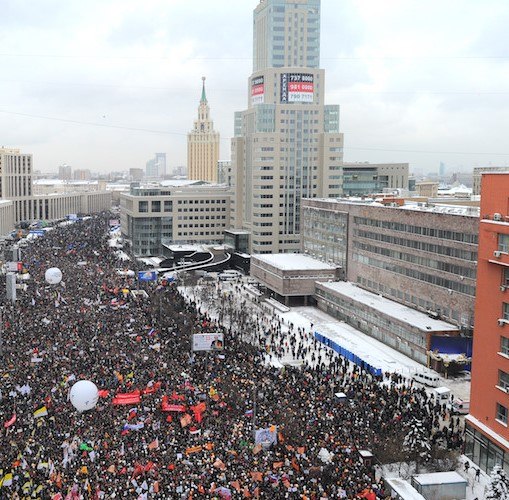(Institute of Modern Russia) As the Russian economy flounders due to the low price of oil, the possibility of social unrest has risen, leading Putin’s government to clench its grip on the media and the political system. But will its approach backfire as the tension builds? IMR analyst Ezekiel Pfeifer spoke with Dr. Robert Orttung, professor of international affairs at George Washington University, about the Kremlin propaganda machine, Putin’s sky-high approval rating, and the likelihood of revolutionary change in Russia. […]
Pfeifer: So you see revolution as a more likely scenario than a kind of Brezhnev-style stagnation until Putin dies?
Orttung: Certainly nobody wants to engage in these kinds of revolutionary activities in Russia, because they realize that it’s going to be violent and bloody. But Putin blocks any kind of reform—even the smallest opposition from winning even the most inconsequential local elections, as we saw in September [in Kostroma]. There’s no outlet, there’s no change in the system, and there’s no way for anybody to voice any kind of political opinion. So it is hard to see how there could be any kind of other response. Putin’s current model seems to be threatening everybody with terrorism, warning, “There’s going to be terrorists from Islamic State, from Afghanistan, so if I’m not here it’s only going to be worse.” That might be a convincing argument for most people, but the tension is building. […]
Read More © Institute of Modern Russia









